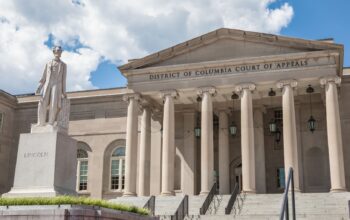by Charlene Crowell, Special to The Informer
More than 37,800 student loan borrowers who were tricked by a student loan debt relief operation soon will share more than $3.3 million in restitution, thanks to enforcement action announced in mid-June by the Federal Trade Commission (FTC).
The FTC began investigating Arete Financial Group in 2019 after complaints of false promises of student debt relief. The agency found that Arete Financial Group and several related companies used radio, television, online ads, and telemarketing calls promising their monthly fees would reduce or eliminate consumers’ student loan balances. Instead, borrowers were lured into illegal upfront payments because the firm falsely claimed to be affiliated with the U.S. Department of Education.
The June action follows another FTC enforcement action that delivered this April more than $1.1 million in refunds to 41,934 consumers who had been defrauded in so-called “free-trial offers.”
In that case, RevMountain, LLC, Anasazi Management Partners, and 59 related corporate defendants were charged for deceptive “free trial” offers for tooth whiteners and other products to consumers who paid a small fee. Instead, consumers were charged, without their knowledge, for two ongoing subscriptions to nearly identical products that cost them approximately $200 a month, or until a cancellation was received.
Information on all FTC refunds is available at https://www.ftc.gov/enforcement/recent-ftc-cases-resulting-refunds/refund-programs-frequently-asked-questions.
Last year, FTC returned more than $392 million to more than 1.9 million consumers who registered complaints, according to the agency’s annual report. Auto sales and financing, payday lending, credit repair and debt relief were targets of other successful enforcement in 2022 that benefited consumers in every state.
For example, $9.8 million in restitution was paid to 66,355 consumers last November by an Illinois-based automobile dealership group, Napleton, that charged junk fees to consumers for unwanted add-ons such as payment insurance and paint protection. The dealership also advertised $90 down payments on mailers without disclosing the terms of repayment or annual percentage rate, as required by law, which led to consumers incurring hundreds or thousands of dollars in excessive fees. These actions violated multiple consumer protection laws including the Truth in Lending Act, and were brought in cooperation with the State of Illinois.
Similarly, a 2022 case involving Harvest Moon Financial, an internet-based payday lending enterprise that included 11 firms, multiple websites and telemarketing, bilked millions of dollars from consumers through deception about the terms of their loans and an absence of required loan disclosures.
“Harvest Moon bled consumers dry, by promising a single payment payday loan, but then automatically debiting consumers’ bank accounts for finance charges every two weeks, in perpetuity,” said Andrew Smith, director of the FTC’s Bureau of Consumer Protection.
Further, the firm made withdrawals from consumers’ checking accounts without authorization, violations of both the FTC Act and the Electronic Fund Transfer Act. FTC secured a $970,000 refund for the scam’s victims.
Last year in written testimony before the House Appropriations Subcommittee on Financial Services and General Government, reminded lawmakers of the agency’s value to the nation.
“The FTC is charged with tackling unfair or deceptive practices — be it businesses who lie about products being Made in America, fraudsters who peddle fake COVID cures, or firms who abuse consumer data — and we’re responsible for rooting out unfair methods of competition that can crush entrepreneurs and stifle innovation,” Kahn stated. “I have asked staff to orient our enforcement efforts around targeting and rectifying root causes to avoid a whack-a-mole approach that imposes a significant enforcement burden with few long-term benefits. We are also ensuring that our work is tackling the most significant harm across markets, particularly by dominant firms whose business practices affect huge swaths of Americans.”
Ms. Khan also advised that these accomplishments came despite successive budget cuts in 2017 and 2018 that left the agency with two-thirds of the staff it had in 1980.
Even so, recent enforcement actions continue the pro-consumer achievement. Now as Congress resumes its annual appropriations process, it would be useful to remind lawmakers of what’s really working for the people.
Source: Published without changes from Washington Informer Newspaper




